The spectacular view of our planet, the only thing humanity has ever known, sits quietly and glowing with a serene blue, with oceans, clouds, and land. It might seem so busy down there to an astronaut, but set against eternal blackness, must seem breathtaking. Many astronauts say how they wish that they could take meddling and self-serving politicians up with them and show them how little all of their political drama matters. Although dragging a politician up and out of Earth’s atmosphere is just one of the many things which are impossible to do in outer space!
Humans have evolved to live in our world perfectly; adapted to breathe the air and walk on the surface with ease. Unfortunately, this convenience does not stretch to the rest of the universe (or at least, the vast majority of it), and outer space is a very inhospitable place where most of what we take for granted on Earth is impossible. So what can’t people do in space?
15. Go Out For A Walk
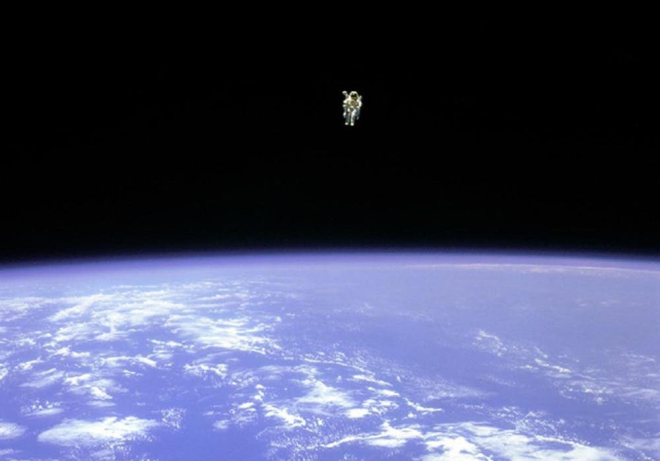
Thanks to evolution, humans weigh the perfect amount to function in Earth’s gravity and can stand, walk, run, jump, throw, sit and lie down at the end of a long day. To lift objects up and down as well as keep them in place, but it does not take long for this sweet deal to change a few miles upwards. The delicate balance of our atmosphere soon departs for good once an astronaut enters outer space, so that even basic things like going for a walk become a thing of the past. Unless a space traveler is strapped down, they will only ever float away, and a spacewalk involves much equipment and potentially drifting out into darkness! So astronauts forget about moving their legs and must strap themselves down onto a treadmill if they want to get exercise.
14. Sit Down On A Toilet
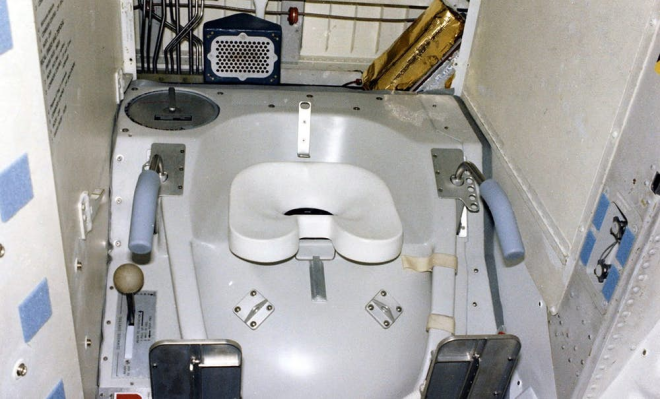
If you have got to go then you have got to go, and sitting on the toilet is something that people take for granted alongside the ease that going to the toilet inevitably is for us. However, being in space changes this necessity for us ever so slightly to the point where a journey to the John becomes a very tough ordeal because of our old friend, gravity. Going to the bathroom in space means strapping more straps to yourself than jumping down the side of a mountain; just so an astronaut does not drift up in the air mid-stream. Even worse is the risk that a brown intruder could end up floating around the space station, so it is vital to be tied down tight!
13. See Stars Flicker
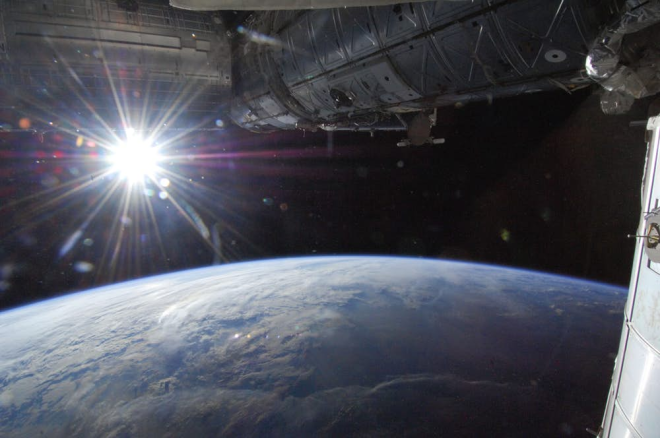
“Twinkle, twinkle, little star.” Everyone knows the famous rhyme and how it goes; people are so used to glancing up on a clear night and seeing the stars. Far, far away are bright objects shimmering brightly in the night sky like tiny yellow, blue, white or orange dots puncturing the deep gloom of the night sky. It is only fair to assume that stars are shimmering all those light years away too, but the reality is actually somewhat different. The Earth’s atmosphere is gaseous, so when the light from stars passes through the air, its light is distorted to give the impression that stars shimmer. Therefore an astronaut in outer space will not see the flickering of stars but just a steady light, like the sun’s rays.
12. Use A Regular Pen
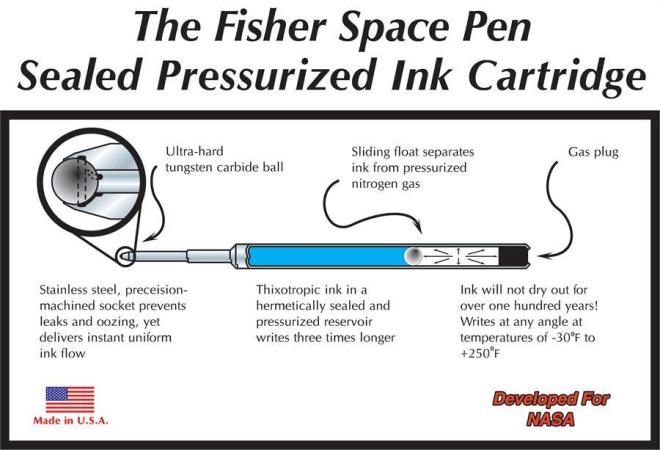
There is a myth going around that in the past, at the height of the Space Race between the US and the Soviet Union to reach the moon, Americans found that pens would not work in space. Allegedly, they spent money developing a special pen, while the Soviets used a pencil, however, the opposite is true. The Russians used specially created pencils up in space while Americans used markers until an inventor named Paul Fisher invented a specially developed pen that could be used in space as an aid to writing that stopped the ink from congealing in zero gravity. Now with greater computer technology, pens probably do not get used as much, but it shows the level of ingenuity needed even for simple tasks, like writing, while in orbit.
11. Shedding A Tear
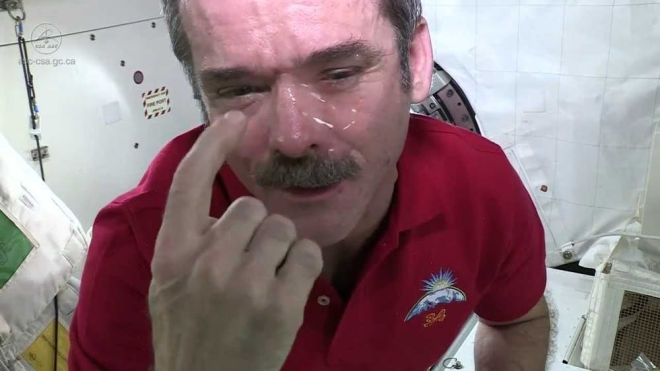
Humans are made up of mostly water; everyone knows this and sometimes this water leaks from the body. Some of these secretions of water are what we usually know as tears that can be shed over anything, from emotional moments to even chopping onions or receiving a blow to the downstairs area. But watching an emotional chick flick in space could get even more frustrating and dreadful when welling up because, unfortunately, in space, the lack of gravity makes it impossible for tears to fall, so they just clump together around the eyeball. It must be awkward then to get something in your eye in space and then have a saltwater ball hanging from the eyelashes, hovering alongside you, stuck on your face in space.
10. Fancy A Floating Meal?
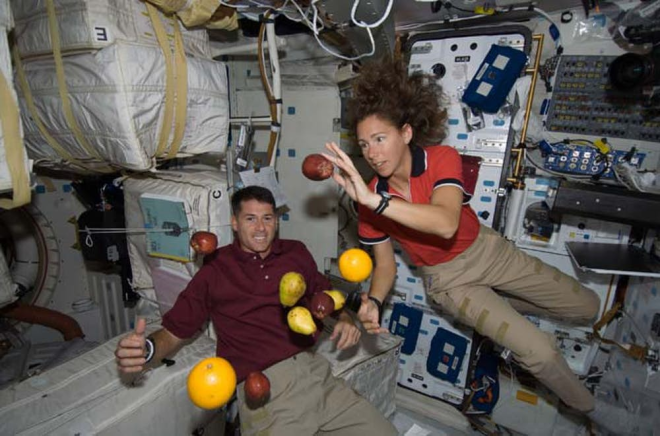
Eating is much more than a regular chore for staying alive and fuelling our bodies for survival with nutrition. For humans, it is more of a pleasure, and even in some ways, an art form when chefs create a meal that tastes and looks phenomenal. When astronauts are aboard a space station for months at a time, there are many meals stocked up to keep them going during their time in orbit. However, in zero gravity, a meal cannot just get dished up on a plate in orbit so they have to get creative and it becomes an exercise all of its own when astronauts eat; catching hovering food skewered on a fork. When fluid moves to their heads over time, taste goes– another downside– meaning an astronaut will eventually prefer spicier food.
9. Epic Dives And Leaps No More
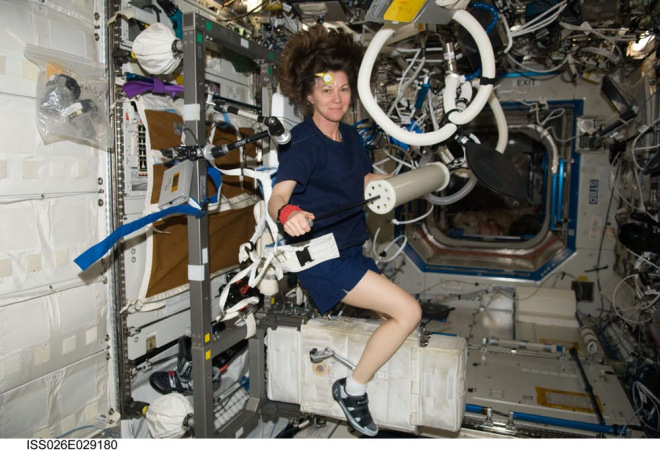
Drifting above the world at over 250 miles above its surface seems pretty cool and unusual enough. Floating around can look awesome and also somewhat tranquil. Astronauts do get leisure time aboard the space station, but it is hardly the same as sitting around in a chair and relaxing to while away the hours before turning in for the night (hard to tell in constant blackness). Flying slowly inside a tin can (to quote David Bowie) may seem wonderfully peaceful, but after a time it must get rather annoying, which means other tasks are needed to occupy oneself in mid-air. Playing ball and other games in the space station looks even more brilliant, appearing similar to a slow-motion movie scene of an epic film!
8. Go Online
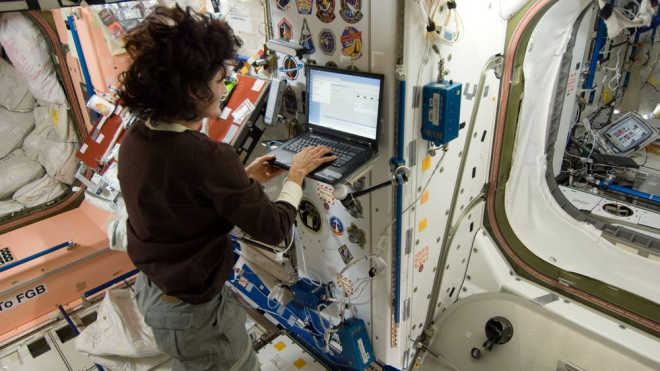
Over the last few decades, the internet has gone from being a unique and unusual method of communicating to being a commodity that is not only available on computers but currently on everything from phones to refrigerators! Even virtual currency exists, and implants are getting worked on to allow users to access the internet through the blink of an eye. One might think that even up in space there would be some way for astronauts to surf the web as they do in zero gravity. The internet is not available in orbit though, and although computer devices are on board above Earth, there is no internet connection on them, no social media either!
7. Go Outside Without A Special Suit
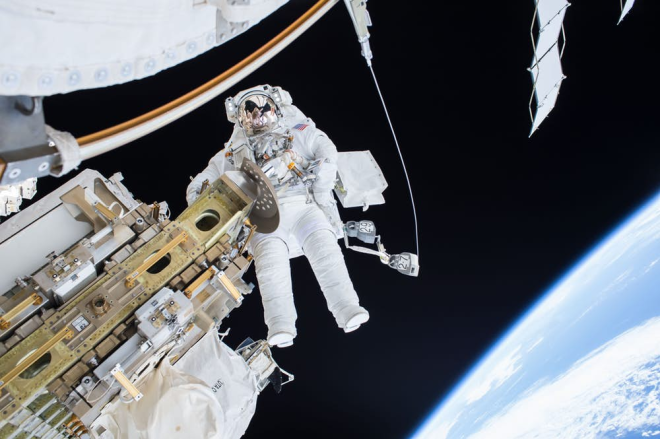
Earth is nice and homely for the most part, barring getting lost in a desert, jungle, forest, icy tundra or taking a wrong turn into a bad area, but it is largely a place that houses us comfortably. Heading outside for a stroll or for some other purpose means nothing to the majority of us humans who have evolved perfectly to the conditions of our planet. Being stuck in a huge metal tube for months can get a little frustrating and no doubt boring, even with the cool fact of being in space and the beautiful views. Going outside does not involve the simple exercise required back on solid ground, instead, an astronaut has to get hooked up to complex breathing apparatus, which are also constantly working in the space station.
6. Work Those Muscles Or Lose Them, Literally!
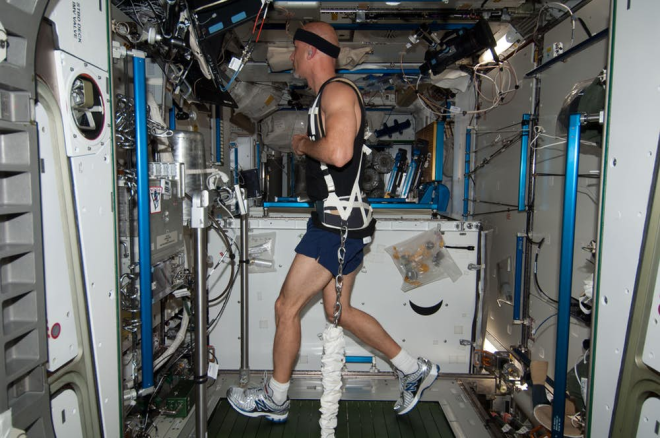
It is hard work being up in space consistently for a large part of the year, not only stuck away from friends and family but unable to do various simple things like stand up! The inability to sit and stand, ghosting around objects has its fun that probably soon gets old, and it has some adverse effects on the body too. Existing for so long with no gravity leads to muscle wastage; our muscles developed for a reason, to allow us to live on our planet’s surface, not floating 200 miles above Earth! To stop the wasting away of muscles, an astronaut cannot be any slouch in space, they must frequently work out to ensure their muscles remain strong for when they return home.
5. Forget About Fresh Water
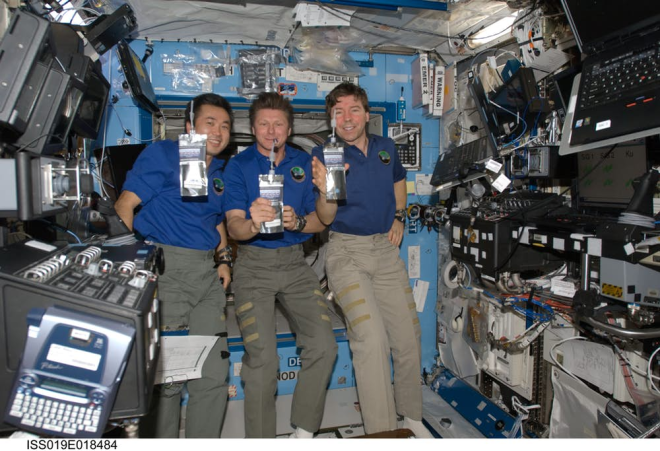
Everything gets delivered in neat little packages up in space, and it needs to be because upon the International Space Station all operations must be conducted correctly, as the consequences of them not being so could be fatal. Even the drinking water is regulated, but it is not very easy or possible to set up a large water tank and keep it fresh in such a location as the International Space Station. People, even astronauts, need to have water to drink and as humans, they also take a pee, so what is the alternative here? One of the methods that US astronauts employ to obtain water is by filtering their urine… yuk! Alongside the Russians, US astronauts also use condensed air to create moisture to drink.
4. Sunlight But Never Daylight
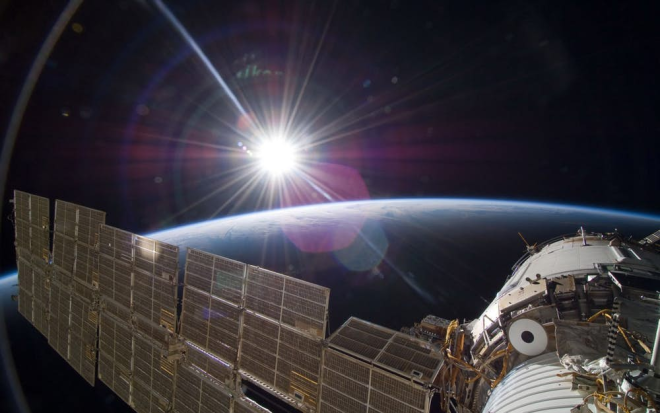
Looking out and looking down at our planet is a rare privilege that has not been afforded to many of our species since the 1950s. Outside the sphere and protective bubble that is our planet, the universe is mostly a huge blanket of blackness that may potentially stretch out forever. Our blue sky is caused by the rays of sunlight breaking apart and reflecting through the nitrogen that makes up the bulk of our atmosphere, something that does not exist 200 miles above. An astronaut regularly sees the sun shining, perhaps more than people on Earth do. However, unlike the sun setting in the evening sky down below, in space, it is permanently a white glowing sphere against the black of space.
3. Humans Cannot Claim To Be the Best-Suited Species On Earth For Space Travel

Although it seems as though humans have mastered space travel (at least to the moon, and hopefully in the near future, to Mars) going beyond the boundaries of our planet remains very difficult, expensive and time-consuming. Our species’ higher intelligence enables us to study existence around us despite being limited by our adaptation to Earth, but some species on Earth can manage just fine. Enter the tardigrade, better known as the water bear, a microscopic creature found in water all over the world. Tardigrades can survive extreme temperatures, close to absolute zero, as well as being capable of withstanding gamma-ray bursts and meteor strikes, including nuclear radiation and even the nothingness of outer space! These tiny beings put us humans to shame with their ability as Earth’s true astronauts!
2. No Drinks In Space
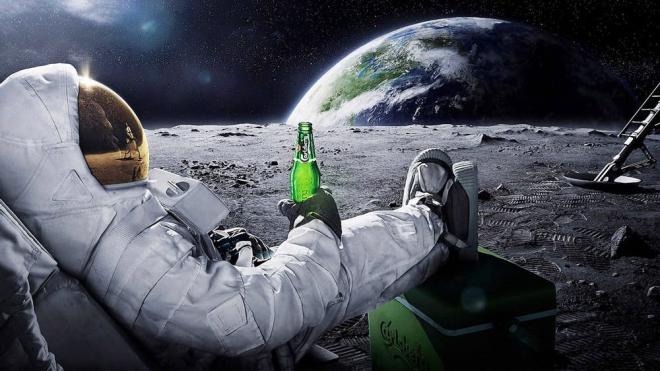
One of the few pleasures in life is knocking back a beer or having a drink to toast something. For that reason, it would seem that alcohol would be a perfect compliment for the strenuous life aboard a space station, but an attempt to get some booze aboard Skylab resulted in its ban. Charles Bourland tried to get some wine up in orbit, but gravity could hamper the flow of the drink so he opted for the more hardy sherry option instead. Unfortunately, it was revealed during launch tests that the fumes of the sherry mixed with the fuel and caused astronauts to vomit. Furthermore, when Bourland gave a lecture and mentioned putting alcohol in orbit, NASA received lots of complaints from the public, bringing an end to any tipples in space!
1. Pokémon Go… In Space?
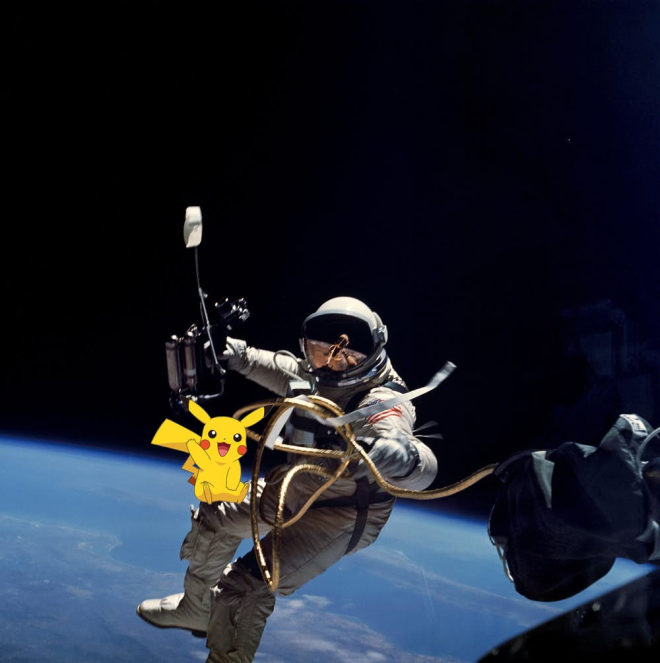
Last year, the app Pokémon Go almost took over the entire world and was a phenomenon that sapped the brain. People were stampeding after rare Pokémon or creating Pokéstops on every street corner. One would think that spinning around the Earth would be a great way to find all Pokémon as a space station voyages around the planet, but no. Astronauts are not above the world for fun (though it must be fun). Much of their time is committed to research and various other scientific studies. While having smartphones, these are used for the purposes of research and unfortunately are not connected to the internet. Well, they do need to work up there, not play; wi-fi may just make them a little distracted!

